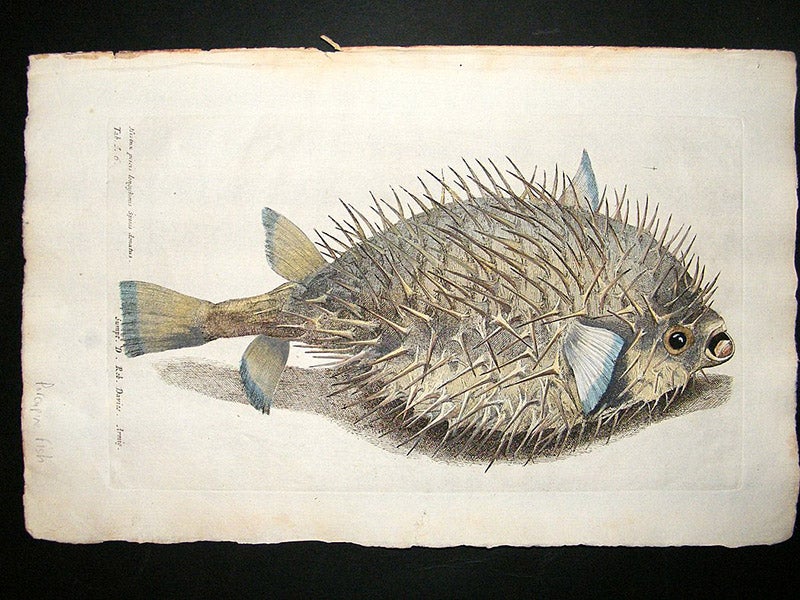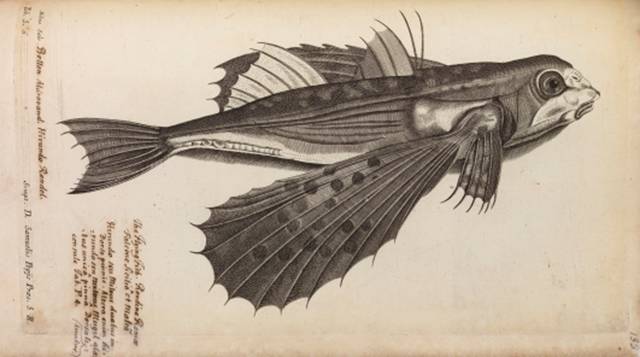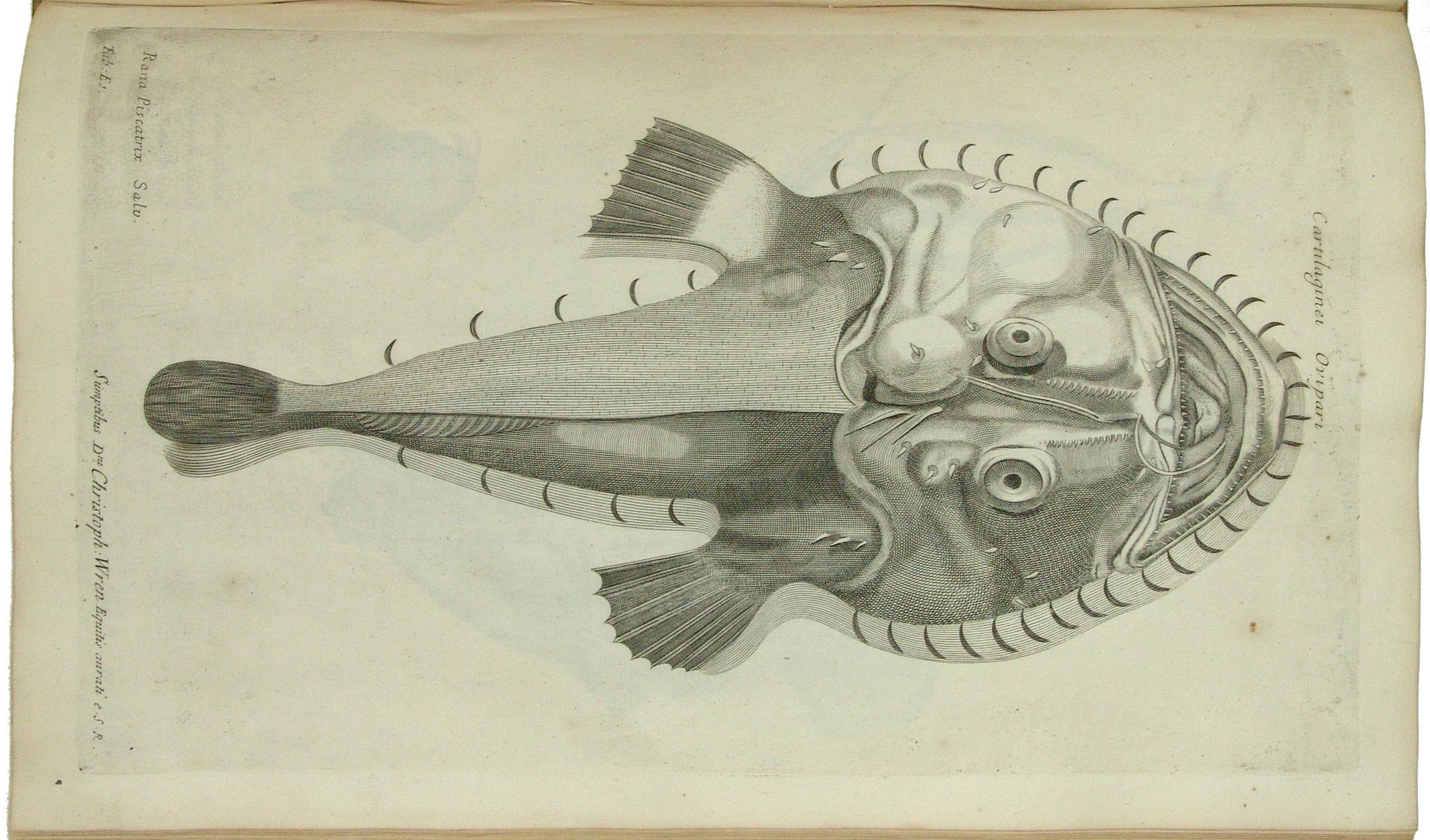The exalted status of Isaac Newton’s Philosophiæ Naturalis Principia Mathematica is reflected by the fact that everybody knows it as, simply, the Principia. Very few of us, by contrast, speak of the Historia when we mean to refer to John Ray and Francis Willughby’s De Historia Piscium, which came out in 1686, the year before the Principia. Both books were published by the Royal Society, and as it happens, the formidable cost of Willughby and Ray’s lavish work of ichthyology nearly kept Newton’s groundbreaking treatise on motion and gravitation from the printing press.

According to the Royal Society’s web site, “Ray and Willughby’s Historia did not prove to be the publishing sensation that the Fellows had hoped and the book nearly bankrupted the Society. This meant that the Society was unable to meet its promise to support the publication of Isaac Newton’s masterpiece.”
Fortunately, “it was saved from obscurity by Edmund Halley, then Clerk at the Royal Society” — and now better known for his eponymous comet — “who raised the funds to publish the work, providing much of the money from his own pocket. ”

Halley’s great reward, in lieu of the salary the Royal Society could no longer pay, was a pile of unsold copies of De Historia Piscium. That may not have been quite the insult it sounds like, given that the book represented a triumph of production and design in its day. You can see a copy in the episode of Adam Savage’s Tested at the top of the post, and you can closely examine its imagery at your leisure in the digital archive of the Royal Society. In the words of Jonathan Ashmore, Chair of the Royal Society’s Library Committee, a browsing session should help us “appreciate why early Fellows of the Royal Society were so impressed by Willughby’s stunning illustrations of piscine natural history.”

Though Savage duly marvels at the Royal Society’s copy of the Historia — a reconstruction made up of pages long ago cut out and sold separately, as was once common practice with books with pictures suitable for framing — it’s clear that much of the motivation for his visit came from the prospect of close proximity to Newtoniana, up to and including the man’s death mask. But then, Newton lays fair claim to being the most important scientist who ever lived, and the Principia to being the most important science book ever written. Almost three and a half centuries later, physics still holds mysteries for generations of Newton’s successors to solve. But then, so do the depths of the ocean.
Related content:
Sir Isaac Newton’s Papers & Annotated Principia Go Digital
The Brilliant Colors of the Great Barrier Revealed in a Historic Illustrated Book from 1893
Based in Seoul, Colin Marshall writes and broadcasts on cities, language, and culture. His projects include the Substack newsletter Books on Cities, the book The Stateless City: a Walk through 21st-Century Los Angeles and the video series The City in Cinema. Follow him on Twitter at @colinmarshall or on Facebook.


Particularly ironic, since today we know that fish don’t even exist.